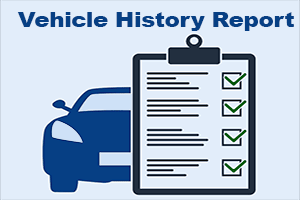California Vehicle History Report
Buying, or researching a car in California? There's one very important step you shouldn't overlook. Running a CA vehicle history report. This report provides a detailed account of a car's past. It's a treasure trove of information, from accident history, recalls and safety issues, to branded titles. It can even reveal if the car has been involved in natural disasters or has any liens against it.
Why is this important? Because it helps you make an informed decision about a used vehicle you may want to purchase. It ensures you're not buying a car with hidden issues or one that's been misrepresented by the seller. Accessing a car's history will give you an objective view of what condition that vehicle is actually in. All you need to run a California vehicle history report is the 17-digit VIN or the license plate number.
Understanding Vehicle History Reports
A vehicle's history is a comprehensive overview of a car's past. Running one requires using one of the two vehicle identifiers to gather data, either the VIN or the license plate number. The VIN is usually the most accurate identifier to use, as sometimes people change and customize their license plate numbers.
This report is a must for car buyers in California. It offers insights into the car's condition, accident history, branded titles, and potential safety problems. It's like a biography for the vehicle, detailing everything significant that the car has been through. These have become so popular in recent years that many dealerships will offer one for free when purchasing a used vehicle. However, if you are buying from a private seller, you will need to run one on your own.
What is Included in a Vehicle History Report?
A CA vehicle history report contains various a multitude of important details about a car. These help determine its current status and worth and if there are any glaring issues that should be recognized. The report details accident history, and will show if the car is a rebuilt or salvaged, for example. This may be one of the most important elements of this report, and in assessing the car's structural integrity. This can greatly impact the value a vehicle is given.
The report includes a list of how many previous vehicle ownership changes. It might also show if the car was used as a rental or police vehicle. Knowing this part of the car history helps gauge how extensively and in what manner the vehicle was used. Additional factors like liens, emissions inspection status, and recalls are included. These aspects provide further insights into potential legal or mechanical issues.
Service records are another important component, however it depends on what has actually been reported. Not all reports include this. You can always ask the seller for a copy of all the service records so that you can observe if it has been maintained properly, and how well the car has been cared for.
How to Obtain a California Vehicle History Report
Getting a copy of a California vehicle history report can be done online. Start by finding the Vehicle Identification Number (VIN). The VIN acts as the primary identifier for the car, making it a key component in accessing the report. Like a snowflake, no two are alike and cannot ever be re-used, where a license plate number can.
Once you have the VIN, you can approach various online providers to obtain the report. Many services, including vehicle record websites, allow you to input the VIN and generate a history report. Most of these reports will be made available instantly, however others could take a short processing period. It's important to make sure to choose a reputable provider for accuracy and accountability.
Step-by-Step Guide to Running a California VIN Check
Running a California VIN check involves a few simple steps. First, locate the VIN on the vehicle. It can often be found on the dashboard or the driver's side door frame. It can also be found on the vehicle title, registration card, or on the engine itself.
Next, choose a service provider. Options include online vehicle record databases, DMV services, and specialized vehicle report companies such as CarFax. Once you've selected your provider, create an account if needed. This step is often required for access to the full report.
Enter the VIN into the search box. After submitting the request, be prepared to pay any fees to see your results. Some providers offer a basic free vin check report, and comprehensive reports will cost a few bucks. It's definitely worth it to find a reputable provider if you are vetting a used vehicle, as free reports will not always have the important details such as accident reporting or list the vehicle title as being salvaged or totaled.
Here's a quick reference for the process:
1). Find the VIN on your vehicle.
2). Select a reputable service provider.
3). Enter the VIN and make the payment.
4). Wait for the processing of your report.
5). Review the report and identify any concerns.
Key Components of the Report and Their Significance
Understanding the key components of a vehicle history report is a good idea for mindful car buyers. Each section provides unique insights into the vehicle's past, allowing buyers to make educated decisions. From accident history to ownership changes, these details can significantly impact a vehicle's value. They also help in assessing potential risks. By examining these components, buyers gain a clearer picture of a vehicle's overall condition and reliability. Here is a quick run-down of items to review on the report:
Accident History and Previous Damage: The accident history section reveals past collisions and damage reports. This information helps buyers assess the safety and repair history of the vehicle. Identifying any significant damage can be a deal-breaker for many buyers.
Service Records and Ownership Changes: Service records show the maintenance routine of the vehicle. Regular service indicates responsible previous ownership. Additionally, ownership changes indicate how often the car was transferred, which may suggest underlying issues. However, not all reports include this information so you may need to ask the seller for these records.
Liens, Lemon Law, and Other Critical Information: A section covering liens and lemon law claims is good to review. Liens indicate outstanding debts on the vehicle. Lemon law labels expose manufacturing defects. This information can help assess if the vehicle is a sound investment and free from legal complications.
Why You Should Never Skip the Vehicle History Report
Caveat Emptor, meaning buyer beware is a term that should be taken seriously when buying a used vehicle. There is no cooling off period or returns. Skipping the part of looking up a car's history is a risk no buyer should take. Ignorance of a car's past can lead to costly surprises down the line. A vehicle might appear fine but could harbor hidden issues. These issues include undisclosed accidents or pending recalls, which could affect safety and repair costs.
Relying solely on a seller’s word is not always wise, especially if there were multiple previous owners. A CA car history report provides an unbiased view of the vehicle. It acts as a safeguard against misinformation, and gives the buyer control of their purchase. This step essentially makes the buyer well-informed before making a significant financial transaction.
Avoiding Costly Mistakes and Fraud
For instance, a car history report can uncover odometer fraud or an unreported major accident. Knowing the full story can help the buyer's peace of mind and offers some protection of their investment. A small inexpensive upfront check can save future expense and stress.


